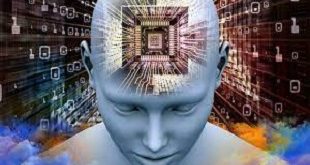Introduction:
In the ever-evolving landscape of technology, Artificial Intelligence (AI) stands as a beacon of innovation, reshaping industries, enhancing efficiency, and challenging the boundaries of what is possible. This article delves into the multifaceted world of AI technology, tracing its evolution, exploring its current state, and envisioning the potential it holds for the future.
Origins and Evolution:
The Birth of AI:
- The roots of AI can be traced back to the mid-20th century when pioneers like Alan Turing and John McCarthy laid the conceptual foundations. The term “Artificial Intelligence” was coined in 1956 during the Dartmouth Conference, marking the official birth of a field that sought to create machines capable of intelligent behavior.
Early Milestones:
- In the following decades, AI development witnessed significant milestones. The development of expert systems, symbolic reasoning, and rule-based programming in the 1970s and 1980s paved the way for early AI applications. However, progress was tempered by limitations in computing power and data availability.
The AI Winter:
- The late 1980s and early 1990s saw a period known as the “AI winter,” characterized by reduced funding and waning interest in AI research. Despite setbacks, this period allowed for reflection and laid the groundwork for the resurgence of AI in the following decades.
The Rise of Machine Learning:
Paradigm Shift:
- The turn of the 21st century witnessed a paradigm shift in AI, marked by the ascendancy of machine learning. Instead of relying on explicit programming, machine learning systems leveraged data to learn and improve performance over time. This approach, coupled with advancements in computational capabilities, ignited a new era of AI innovation.
Big Data and Deep Learning:
- The proliferation of big data became a catalyst for AI advancements. Machine learning algorithms, particularly deep learning, demonstrated remarkable capabilities in image and speech recognition, natural language processing, and other complex tasks. Neural networks with multiple layers, mimicking the human brain’s structure, fueled breakthroughs in AI capabilities.
AI in Industry:
- Industries began integrating AI solutions to enhance productivity and decision-making. From predictive analytics in finance to robotic process automation in manufacturing, AI applications started demonstrating tangible benefits, reshaping workflows and business models.
The Current State of AI:
Ubiquity of AI Applications:
- In the present day, AI has become pervasive, embedded in various aspects of daily life. Virtual assistants, recommendation systems, and smart devices exemplify how AI technologies seamlessly integrate into the fabric of our interconnected world.
Natural Language Processing:
- Natural Language Processing (NLP) has witnessed significant strides, enabling machines to understand, interpret, and generate human-like text. This has led to the development of chatbots, language translation services, and sentiment analysis tools, revolutionizing communication and customer service.
Computer Vision:
- Computer vision, empowered by AI, has transformed image and video analysis. Applications range from facial recognition and autonomous vehicles to medical imaging and augmented reality, showcasing the versatility and impact of AI in visual perception.
Reinforcement Learning:
- Reinforcement learning, an area of machine learning, has gained prominence in training machines to make sequential decisions. This has found applications in gaming, robotics, and optimization problems, enabling AI systems to learn from experiences and improve decision-making.
AI in Healthcare:
- The healthcare sector has witnessed a surge in AI applications, from diagnostics and personalized medicine to drug discovery. Machine learning algorithms analyze vast datasets, aiding in early disease detection and treatment customization, thereby revolutionizing healthcare delivery.
Ethical Considerations:
- As AI technologies advance, ethical considerations surrounding data privacy, bias in algorithms, and the potential impact on employment have come to the forefront. Striking a balance between innovation and responsible deployment is crucial to ensuring the positive societal impact of AI.
Future Horizons:
Autonomous Systems:
- The development of autonomous systems, including self-driving cars and drones, is poised to redefine transportation and logistics. AI-driven decision-making in real-time scenarios presents both challenges and opportunities for creating safer and more efficient systems.
Quantum Computing and AI:
- The intersection of quantum computing and AI holds the promise of exponentially increasing computational power. Quantum AI algorithms have the potential to revolutionize complex problem-solving, enabling advancements in fields such as cryptography, optimization, and materials science.
Explainable AI:
- Addressing the “black box” nature of some AI models, the focus on explainable AI aims to enhance transparency and accountability. Understanding how AI arrives at decisions is crucial for building trust and facilitating responsible deployment across various sectors.
AI for Social Good:
- The concept of using AI for social good involves leveraging technology to address societal challenges. From climate modeling and disaster response to healthcare accessibility, AI applications can play a pivotal role in creating positive impact and promoting inclusivity.
Human-AI Collaboration:
- The future of AI envisions a closer collaboration between humans and intelligent machines. Augmented intelligence, where AI enhances human capabilities rather than replacing them, is a paradigm that emphasizes a symbiotic relationship for achieving collective goals.
Conclusion:
Artificial Intelligence has evolved from a conceptual framework to a transformative force that permeates various facets of our lives. The journey from early AI research to the current landscape of machine learning and advanced applications showcases the resilience and adaptability of this field. As we stand at the intersection of technological innovation and ethical considerations, the future of AI holds both exciting possibilities and a responsibility to ensure that these technologies contribute positively to society.
In navigating the horizon of AI, we find ourselves in a dynamic landscape where innovation converges with ethical considerations, and the transformative potential of technology meets the imperative of responsible deployment. The evolution of AI reflects not only the progress of technology but also the evolving relationship between humans and intelligent machines. As we embrace the opportunities and challenges that AI presents, we embark on a journey that reshapes the way we live, work, and interact with the world around us.


